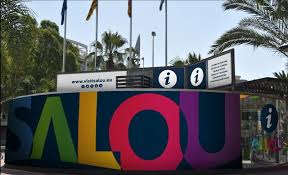Skip to content
Paulinus Iheanacho Okoronkwo, a former senior official of Nigerian National Petroleum Company (NNPC), following his U.S. conviction and associated asset forfeiture:
Who is Okoronkwo?
Paulinus Iheanacho Okoronkwo is a dual citizen of Nigeria and the United States, who at one time served as a general manager in the upstream division of NNPC (now NNPC Limited). (Department of Justice)
Concurrently (or afterwards) he practised law in Los Angeles, focusing on immigration, family and personal-injury law. (irs.gov)
In his role at NNPC, he held a fiduciary obligation to the Nigerian government through the State-owned oil company, and thus his status as a “foreign official” under U.S. law was central to the prosecution. (Department of Justice)
The Bribery & Money-Laundering Scheme
Key facts established in court and in media reporting include:
-
In October 2015, Okoronkwo (then with NNPC) received a payment of approximately US $2,105,263 from Addax Petroleum, a Swiss-based subsidiary of China’s state-owned Sinopec. (Department of Justice)
-
This payment was wired to his law-firm’s IOLTA trust account in Los Angeles and was labelled as “consultancy fees” for services his firm purportedly provided. (Department of Justice)
-
Prosecutors alleged that in fact this was a bribe, designed to influence Okoronkwo in his capacity at NNPC to secure favourable drilling or upstream rights for Addax in Nigeria. (Information Nigeria)
-
Addax is alleged to have mischaracterised the transaction in its records, misled auditors, and terminated employees who raised questions. (TheCable)
-
Okoronkwo used at least US $983,200 of the illicit funds as a down payment on a house in Valencia, California, in November 2017. (Department of Justice)
-
He omitted the bribe from his 2015 U.S. federal income tax return and is also charged with obstruction of justice for lying to investigators who asked about the source and use of those funds. (Daily Trust)
Conviction & Potential Penalties
-
In September 2025 a U.S. court found Okoronkwo guilty of three counts of transactional money laundering, one count of tax evasion and one count of obstruction of justice. (TheCable)
-
Under U.S. law, each money-laundering count carries up to 10 years’ imprisonment; obstruction of justice also up to 10 years; tax-evasion up to 5 years. (Department of Justice)
-
The sentencing hearing was scheduled for December 1, 2025. (Nigeria World)
Asset Forfeiture: The Mansion in Los Angeles
One of the key remedies in the case has been the forfeiture of real property tied to the proceeds of crime.
-
On October 3, 2025, a U.S. District Court (Central District of California) issued a preliminary order of forfeiture for a property located at 25340 Twin Oaks Place, Valencia, California 91381 (Tract Number 45433, Lot 12, APN 2826-143-004). (Abuja Press)
-
The property was valued at about US $2.5 million in press reports. (Peoples Gazette Nigeria)
-
The court found a sufficient “nexus” between Okoronkwo’s offences (money-laundering etc) and the property, i.e., it was acquired with illicit funds and thus subject to forfeiture under 18 U.S.C. § 982 and other statutes. (Abuja Press)
-
The forfeiture will become final at or after sentencing, and upon finalisation the U.S. government acquires “clear title” to the mansion and may dispose of it. (Peoples Gazette Nigeria)
Significance & Implications
-
The case illustrates how U.S. authorities can use money-laundering statutes and asset-forfeiture tools to pursue abroad corruption involving foreign-government officials who transact or invest in U.S. jurisdictions.
For Nigeria, the case is part of mounting scrutiny of the oil & gas industry and of alleged corruption within the NNPC and upstream sector. (AKSU Journal)
-
The forfeiture of the luxury U.S. mansion sends a strong message: real estate in the U.S. can no longer be assumed a safe haven for illicit proceeds of corruption.
-
There are also enforcement incentives: by stripping illicitly-obtained assets, the deterrence effect is heightened beyond mere criminal sentencing.
-
On a governance level, the case underscores the importance of oversight in state-owned enterprises, transactional transparency, and cross-border cooperation in financial crime investigations.
What Happens Next?
-
The sentencing hearing for Okoronkwo will determine the actual prison term, fines and other penalties.
-
Once the forfeiture becomes final, the U.S. government will liquidate the mansion (or otherwise dispose of it) and the funds will flow into the U.S. Treasury (or designated asset-forfeiture accounts).
-
Nigeria’s authorities may consider whether to open or continue domestic investigations of the upstream arrangements that gave rise to the bribe, and whether any corporate or governmental actors in Nigeria are implicated.
-
The case may spur further asset-tracing, both in the U.S. and abroad, of additional properties tied to this network of payments.
-
It also serves as a cautionary tale for officials and corporations: even if corruption is executed abroad, if any link to U.S. territory, banking or property exists, U.S. law may be triggered.


